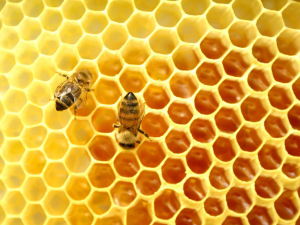Naki unveils the world’s most expensive manuka honey
Naki Honey, a New Zealand manuka apiary company, has crafted what is believed to be the world's most expensive honey.
 The High-Value Nutrition Science Challenge are funding an investigation into native honey composition.
The High-Value Nutrition Science Challenge are funding an investigation into native honey composition.
Plant & Food Research will be leading a national team of research looking at native honey composition and the characteristics that appeal most to consumers.
The funding for the project comes from the High-Value Nutrition National Science Challenge.
The two-year project focuses on prominent native monofloral (single flower nectar) honey – predominantly from kanuka, rata, rewarewa and kamahi – produced by Te Pumautanga o Te Arawa (TPT) beekeeping activities on Department of Conservation areas in the Rotorua region.
The project will analyse examples of honey from across the different geographical regions of the TPT rohe (territory/boundary) to search for specific chemical signatures and potential unique biomarkets.
It will determine the consistency and flavours of honey that consumers prefer, as well as consumer perceptions of Māori values and provenance.
“Honey and honey-related products account for more than $400 million of New Zealand’s export earnings each year,” says project co-lead Aaron McCallion from Waka Digital. “Mānuka honey is the primary honey export, valued for its unique bioactive properties. However, we believe that other native species may also produce honey with great taste and bioactives that will also appeal to consumers.
“Mānuka honey has scientifically-validated properties that consumers will pay a premium for,” says Dr John van Klink, project co-lead from Plant & Food Research.
Combined with advanced consumer insights, the new knowledge gleaned from the project will provide further awareness of the unique properties and consumer value of lesser-kknown honeys, and support the development of new monofloral honeys.
“This investment of over $980,000 from the High-Value Nutrition National Science Challenge fits well with our objective of supporting industrie with their growth aspirations through the application of science,” says Joanne Todd, challenge director.
The project brings together a multidisciplinary team of experts and scientists from Te Arawa and other iwi/hapu entities, Plant & Food Research, AgResearch, Massey University and Apiculture NZ to employ a collaborative bicultural approach.
Global trade has been thrown into another bout of uncertainty following the overnight ruling by US Supreme Court, striking down President Donald Trump's decision to impose additional tariffs on trading partners.
Controls on the movement of fruit and vegetables in the Auckland suburb of Mt Roskill have been lifted.
Fonterra farmer shareholders and unit holders are in line for another payment in April.
Farmers are being encouraged to take a closer look at the refrigerants running inside their on-farm systems, as international and domestic pressure continues to build on high global warming potential (GWP) 400-series refrigerants.
As expected, Fonterra has lifted its 2025-26 forecast farmgate milk price mid-point to $9.50/kgMS.
Bovonic says a return on investment study has found its automated mastitis detection technology, QuadSense, is delivering financial, labour, and animal-health benefits on New Zealand dairy farms worth an estimated $29,547 per season.

OPINION: Here w go: the election date is set for November 7 and the politicians are out of the gate…
OPINION: ECan data was released a few days ago showing Canterbury farmers have made “giant strides on environmental performance”.